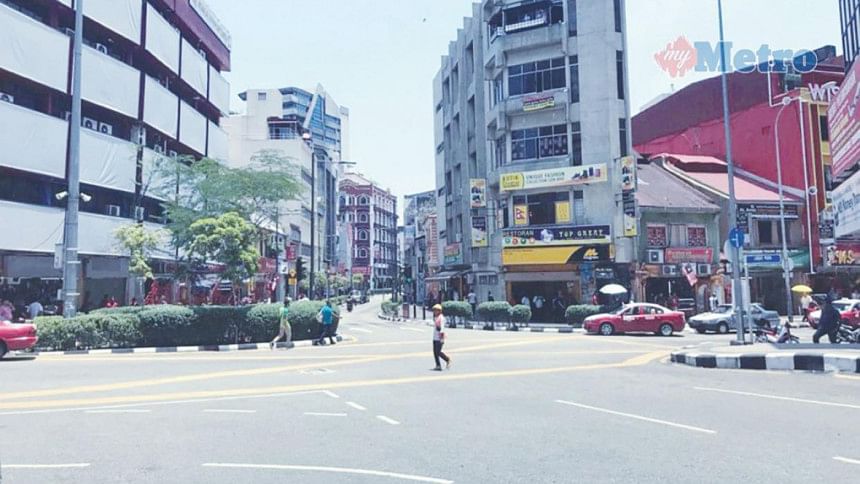A syndicate that wreaked havoc

The story of manpower syndication is the greatest scam that ever happened in our manpower sector, entangling politicians and bureaucrats in high-degree corruption in both Bangladesh and Malaysia. Ten recruiting agents colluded to form an oligopoly of supplying manpower to Malaysia, our second biggest manpower export destination, and managed to get the Bangladesh government's approval, sidelining about 1,400 legal recruiting agents.
The story unfolded like this. It was the regime of Najib Razak, then PM of Malaysia. After the failure of the G2G arrangement of taking workers through the Bangladesh government, the Malaysian government came up with a proposal for G2G Plus. This meant that in addition to sending workers under Bangladesh government's own arrangement, private sector agencies would also be allowed to send workers, initially on a limited scale, under one condition: all workers from both the government and private sector would have to be selected and recruited from the Bangladesh government's own database.
The database was created to cater to Malaysian requirements and all workers would pay only Tk 39,500 as migration cost including passport, ticket, medical fees, service charges and other costs. It was also proposed and asserted by a visiting Malaysian delegation that all the levies and Malaysian government taxes would be borne by the Malaysian employer. Prima facie, it was an excellent proposal and with much fanfare an MoU was signed between the two governments on February 18, 2016.
But the real scenario turned out to be completely different.
Though the last Malaysian government declared that Bangladesh would be categorised and listed as the "source country" for sending workers to Malaysia, this was not so. Like for other source countries, KDN (Malaysian Home Ministry) approval was supposed to be sufficient to begin the final formalities for bringing workers.
But this was not the case for Bangladesh. To ensure the monopoly of 10 agencies, the IT company Synerflux, owned by Amin Mohammad Nor (a Bangladeshi living in Malaysia with PR status by dint of marriage to a local woman) created a new portal under the name SPPA. Every employer holding KDN approval for Bangladeshi workers was compelled to apply again online to SPPA for additional permission to bring workers from Bangladesh by paying certain fees. This software portal is designed in such a way that special permission comes out only in the name of any of the 10 syndicated Bangladeshi recruitment offices. The only choice left to the employer is to recruit workers from the agency designated by SPPA only. This left all the manpower business to monopolistic control of these 10 agents, and all other Bangladeshi and Malaysian approved agents were conclusively put out of business.
To get the formal nod from the MoU partner, the Bangladesh government, a high-powered Malaysian team led by the then labour minister visited Bangladesh and in the discussion they asked Bangladesh to accept these 10 agencies only as sending organisations of workers to Malaysia, assuring that in due time the number of operating agencies will be scaled up. If the Bangladesh government did not accept this proposal, the Malaysian team expressed reluctance to go ahead. Though there is no provision in the MoU of limiting the number of recruiting agencies, and though the Bangladesh government already did send a list of 745 valid recruiting agents, all reasoning of the Bangladesh side was ignored by the Malaysian team. Considering the promises of migration cost at Tk 39,500 (per worker), taking 1.5 million workers and assurance of scaling up the number of sending agents, Bangladesh agreed.
But, none of the above assurances were ever met.
These 10 syndicate members started charging each worker Tk 350,000 (17,424 Ringgit which is almost 10 times more than the rate fixed by the Malaysia and Bangladesh governments in the MoU) from day one, then increasing it to Tk 400,000 (20,000 Ringgit) within a few days. The reason they began charging double the rate that prevailed in the days when no monopoly or syndicate was in operation is that they had to pay Tk 180,000 (8,961 Ringgit) extra per worker as bribe to some high-level Malaysian policymakers, cohorts of high-ups in the government, and some other government officials.
It has been reported that the syndicate member agencies had to transfer a huge amount of money to Amin Nor for payment to designated Malaysian policymakers through the illegal informal channel of hundi—depriving Bangladesh of huge amounts of foreign currency. A rough estimate puts the figure of bribes in Malaysia against about 2,00,000 workers sent at 1.8 billion Ringgit (The Star Online, Malaysia).
Poor job-seekers sell their property, take loans from banks or borrow from relatives to pay these syndicated monopolists. It is a wanton violation of human rights. Most of the workers cannot even earn enough money in Malaysia to recover their sold property or pay off their loans. Ultimately, they become frustrated and many of them run away from their jobs. Many workers die due to heart failure brought about by anxiety and frustration.
Most of the Malaysian employers and legal agents are not happy with this system. Because of the doctored selection only for the 10 member syndicated agencies by the SPPA system, employers do not stand a chance to interview and select workers of his or her choice and cannot recruit from reliable Bangladeshi agents.
Moreover, the only criterion for the 10 agents was their ability to pay huge sums of seed money for inclusion in the syndicate, and the issue of competence and experience was simply ignored. Out of the 10 agents, only four of them have experience of sending workers to Malaysia, while the other six had no such previous experience at all. Their track record can be found in the BMET database.
This unique instance of public extortion with the support and connivance of high-level policymakers must not go unnoticed. Dr Mahathir's Malaysian government has initiated an investigation through MACC (Malaysian Anti-Corruption Commission).
What about Bangladesh? At the insistence of newsmen in a meeting, our Expatriates' Minister said he will "initiate show cause notices after collecting data" (The Daily Star, August 29, 2018). BMET holds the database of all workers with the contact details of their guardians, and it is very easy for any investigating agency to unearth the true story. Moreover, they can easily interview the victims in Malaysia. The anti-money-laundering intelligence cell of Bangladesh Anti-Corruption Commission and Bangladesh Bank can investigate extortion and hundi by syndicate members. The database of BMET is glaring in its information about victims who have been cheated. But only the will of our policymakers seems to be missing.
When a cartel holds huge sums of ill-gotten money—to the tune of Tk 5,000 crore in cash—they can undo, and make ineffectual, any efforts to investigate, unless there is strong political will. This syndication group is in action again. Somehow, they designed another proposal of syndication in Malaysia for 56 agents. Thanks to the Malaysian government of Dr Mahathir, the proposal could not even be tabled in the Joint Committee meeting of September 25.
Unless we put a curb on syndication of manpower export, our standing with labour-receiving countries will go down and the syndicate will be encouraged to undertake similar efforts in other countries, which they are already trying.
To save the most important sector of our economy, the government must bring to book the Malaysian syndicate members after carrying out an impartial investigation and reinforce the importance of transparency and accountability in this trade and defuse any further attempts at cartelism, now and in the future.
It is up to our policymakers to decide and act.
Sources: https://www.thestar.com.my/news/nation/2018/06/22/human-traffickers-made-rm2bil-syndicate-smuggled-in-over-100000-workers-from-bangladesh
Prothom Alo link: https://bit.ly/2QS1WcV
The Daily Star links: https://www.thedailystar.net/news/country/bangladeshi-workers-recruitment-syndication-in-malaysia-govt-issue-show-cause-1625629
https://www.thedailystar.net/frontpage/jobs-malaysia-the-mercy-trafficking-gang-1594030
Abdul Alim is the owner of recruiting agency M/s. S. A. Trading. Email: [email protected]










Comments